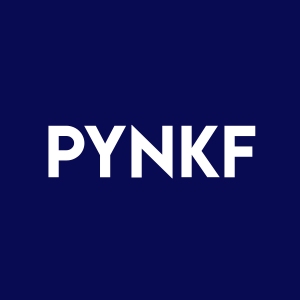Perimeter Medical Imaging AI Announces Publication of Peer-Reviewed Research Examining the High Rates of Re-Operations Following Breast-Conserving Surgeries and the Associated Increased Healthcare Costs
- None.
- None.
Dr. Anthony Lucci, professor of Breast Surgical Oncology at The University of Texas MD Anderson Cancer Center stated, "We conducted this retrospective study to better define and understand the impacts of reoperation rates on patients undergoing breast-conserving surgery and the related increase in costs. The results of our study demonstrate that high reoperation rates after breast-conserving surgery persist and are correlated with elevated risks and adverse outcomes for patients. I believe that these data underscore the need for new approaches to address high reoperation rates, including better methods of margin assessment for surgeons."
The research team identified 17,129 commercially insured women ages 18-64 and 6,977 Medicare beneficiaries age 18 and older who had initial breast-conserving surgery between 2017 and 2019. The one-year follow-up revealed reoperation rates of
Adrian Mendes, Perimeter's Chief Executive Officer, stated, "Our work strives to address the significant costs and negative patient outcomes due to reoperations. By providing innovative, intraoperative imaging technologies, our goal is that no patient has to go through the emotional and physical trauma of a second surgery due to cancer left behind."
Funding to support this research was provided, in part, by Perimeter Medical Imaging AI, Inc.
______________________________ |
1 Kim Y, Ganduglia-Cazaban C, Tamirisa N, Lucci A, Krause TM. Contemporary Analysis of Reexcision and Conversion to Mastectomy Rates and Associated Healthcare Costs for Women Undergoing Breast-Conserving Surgery. Ann Surg Oncol. 2024 Feb 6. doi: 10.1245/s10434-024-14902-z. Epub ahead of print. PMID: 38319511. |
Based in
Perimeter S-Series OCT has 510(k) clearance under a general indication and has not been evaluated by the
Neither the TSX Venture Exchange nor its Regulation Services Provider (as that term is defined in policies of the TSX Venture Exchange) accepts responsibility for the adequacy or accuracy of this release.
This news release contains statements that constitute "forward-looking information" within the meaning of applicable Canadian securities legislation. In this news release, words such as "may," "would," "could," "will," "likely," "believe," "expect," "anticipate," "intend," "plan," "estimate," and similar words and the negative form thereof are used to identify forward-looking statements. Forward-looking information may relate to management's future outlook and anticipated events or results and may include statements or information regarding the future financial position, business strategy and strategic goals, competitive conditions, research and development activities, projected costs and capital expenditures, research and clinical testing outcomes, plans and objectives of, or involving, Perimeter. Without limitation, statements regarding the potential benefits of Perimeter's work and technology, are forward-looking information. Forward-looking statements should not be read as guarantees of future performance or results, and will not necessarily be accurate indications of whether, or the times at or by which, any particular result will be achieved. No assurance can be given that any events anticipated by the forward-looking information will transpire or occur. Forward-looking information is based on information available at the time and/or management's good-faith belief with respect to future events and are subject to known or unknown risks, uncertainties, assumptions, and other unpredictable factors, many of which are beyond Perimeter's control. Such forward-looking statements reflect Perimeter's current view with respect to future events, but are inherently subject to significant medical, scientific, business, economic, competitive, political, and social uncertainties and contingencies. In making forward-looking statements, Perimeter may make various material assumptions, including but not limited to (i) the accuracy of Perimeter's financial projections; (ii) obtaining positive results from trials; (iii) obtaining necessary regulatory approvals; and (iv) general business, market, and economic conditions. Further risks, uncertainties and assumptions include, but are not limited to, those applicable to Perimeter and described in Perimeter's Management Discussion and Analysis for the year ended December 31, 2022, which is available on Perimeter's SEDAR+ profile at https://www.sedarplus.ca, and could cause actual events or results to differ materially from those projected in any forward-looking statements. Perimeter does not intend, nor does Perimeter undertake any obligation, to update or revise any forward-looking information contained in this news release to reflect subsequent information, events, or circumstances or otherwise, except if required by applicable laws.
SOURCE Perimeter Medical Imaging, Inc.







